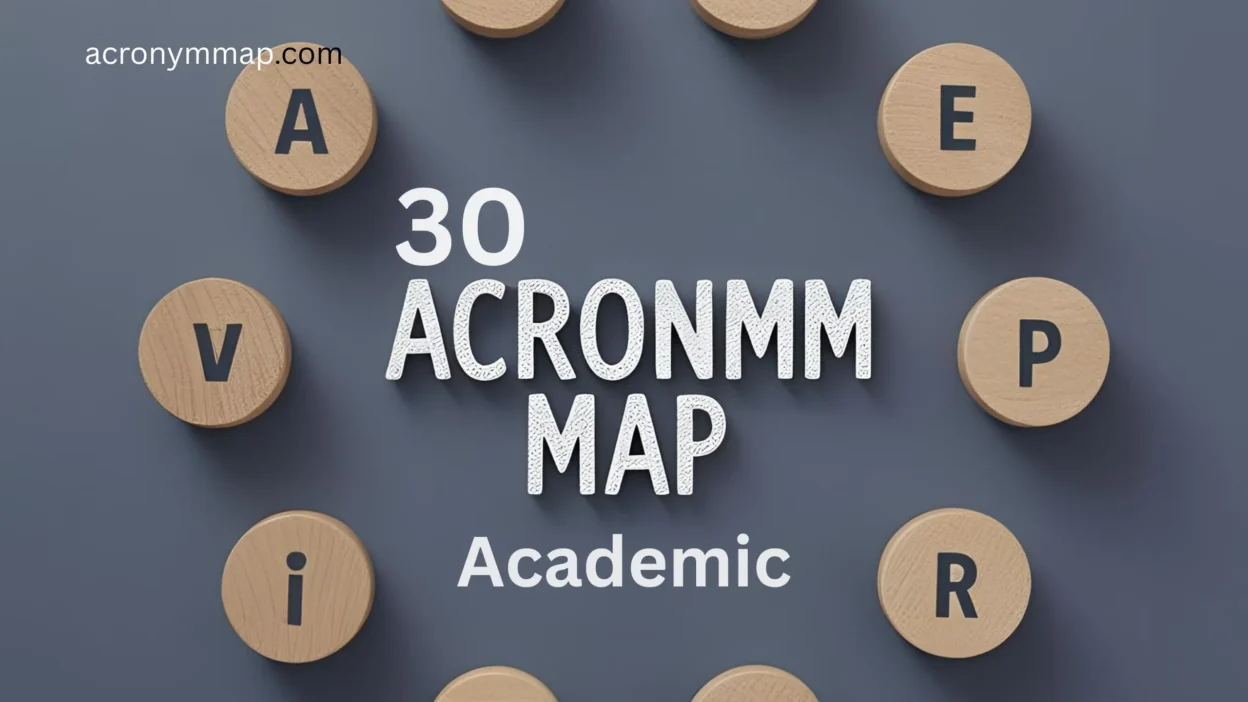If you’ve come across the phrase “academic acronym crossword clue,” you’re likely dealing with a short, snappy abbreviation that represents something related to education, learning, scholarly roles, or institutions—perfect for word puzzles or even character descriptions.
While acronyms like PhD, GPA, or SAT might pop up in crossword clues, we’re going to focus on the traits and personalities that the word “academic” can imply—such as intellectualism, curiosity, logic, analysis, and structure.
So, if you’re looking to describe someone with a scholarly or intellectual personality (or if you want to solve a crossword puzzle where “academic” is the vibe), here are 30 great alternatives, complete with meanings, example uses, and when they fit best.
🧩 30 Alternatives to the “Academic Acronym” Personality
1. Scholarly
Meaning: Deeply educated; focused on study.
Example: His scholarly work is respected worldwide.
Use for: Formal or bookish characters.
2. Studious
Meaning: Diligent about learning.
Example: She was a studious child who read constantly.
Use for: Hard-working learners.
3. Intellectual
Meaning: Thoughtful, brain-focused person.
Example: He’s an intellectual with a love for philosophy.
Use for: Philosophical or high-IQ types.
4. Bookish
Meaning: Loves reading or academics.
Example: Her bookish charm won the professor over.
Use for: Light or nerdy tone.
5. Erudite
Meaning: Deeply knowledgeable.
Example: The erudite lecturer impressed everyone.
Use for: Formal, high-level expertise.
6. Pedantic
Meaning: Overly concerned with details or rules.
Example: He gave a pedantic correction during the talk.
Use for: Nit-pickers or know-it-alls.
7. Professor
Meaning: College instructor or scholar.
Example: The professor taught European history.
Use for: Literal academic roles.
8. Graduate
Meaning: A person with a degree.
Example: She’s a law school graduate.
Use for: Credentials and achievements.
9. Alumnus / Alumna
Meaning: Former student.
Example: He’s a proud alumnus of Yale.
Use for: School affiliations.
10. Dean
Meaning: Academic leader of a department.
Example: The dean announced new scholarships.
Use for: Administrative roles in academia.
11. Tutor
Meaning: One-on-one academic helper.
Example: The math tutor helped him pass.
Use for: Supportive teaching roles.
12. Researcher
Meaning: Studies or investigates knowledge.
Example: The researcher discovered a new compound.
Use for: Science, academia, innovation.
13. Analytical
Meaning: Skilled at breaking down complex ideas.
Example: She has an analytical mind perfect for data.
Use for: Thinkers and strategists.
14. Logical
Meaning: Thinks in orderly, rational ways.
Example: His logical approach solved the puzzle.
Use for: Calm, reasoned characters.
15. Critical Thinker
Meaning: Evaluates ideas objectively.
Example: She’s a critical thinker who challenges norms.
Use for: Problem solvers.
16. Educated
Meaning: Has formal learning or knowledge.
Example: He’s highly educated in economics.
Use for: General academic tone.
17. Savant
Meaning: Exceptionally knowledgeable or gifted.
Example: A musical savant, he played by ear.
Use for: Genius-level intellects.
18. Theorist
Meaning: Develops or works with ideas or theories.
Example: Marx was a political theorist.
Use for: Abstract thinkers.
19. Academic
Meaning: Involved in education or scholarly work.
Example: She built an academic career in literature.
Use for: Any scholarly field.
20. Lecturer
Meaning: Public speaker or teacher at college.
Example: The guest lecturer spoke on climate policy.
Use for: Instructional or speaking roles.
21. Valedictorian
Meaning: Top student in a graduating class.
Example: The valedictorian gave a moving speech.
Use for: High achievers.
22. Scholar
Meaning: Person devoted to study or learning.
Example: A Shakespearean scholar, she translated plays.
Use for: Serious study or research contexts.
23. Linguist
Meaning: Studies or speaks multiple languages.
Example: As a linguist, he focused on ancient dialects.
Use for: Language-based academic roles.
24. Historian
Meaning: Studies or writes about history.
Example: The historian specialized in the Renaissance.
Use for: Academic storytelling and analysis.
25. Anthropologist
Meaning: Studies human cultures.
Example: The anthropologist lived among the tribe.
Use for: Social sciences and global cultures.
26. Student
Meaning: Actively learning or enrolled.
Example: The student worked late into the night.
Use for: School-focused contexts.
27. Academician
Meaning: Member of an academy or scholarly body.
Example: The academician was honored for her research.
Use for: Prestige or elite scholarship.
28. Introspective
Meaning: Deeply thoughtful and inward-looking.
Example: Her introspective nature made her a great writer.
Use for: Quiet, thoughtful minds.
29. Curious
Meaning: Eager to learn or understand.
Example: His curious mind led him to science.
Use for: Childhood wonder or lifelong learners.
30. Learned
Meaning: Wise from study or experience.
Example: The judge was a learned man of the law.
Use for: Dignified, literary tone.
🧠 How to Choose the Right “Academic” Word
Choose your synonym based on tone, context, and level of formality:
- Casual/Youthful: “Bookish,” “studious,” “curious,” “student”
- Formal/Elite: “Erudite,” “scholarly,” “academician,” “theorist”
- Teaching roles: “Professor,” “tutor,” “lecturer,” “dean”
- Subject-specific: “Linguist,” “anthropologist,” “historian,” “researcher”
- Personality-focused: “Analytical,” “introspective,” “logical,” “pedantic”
✏️ Conclusion
Whether you’re solving a crossword, writing an academic character, or describing someone’s learning style, these words give you a full range of intellectual and scholarly traits to work with.
From curious students to world-class scholars, every level of “academic” has a word that fits perfectly.

